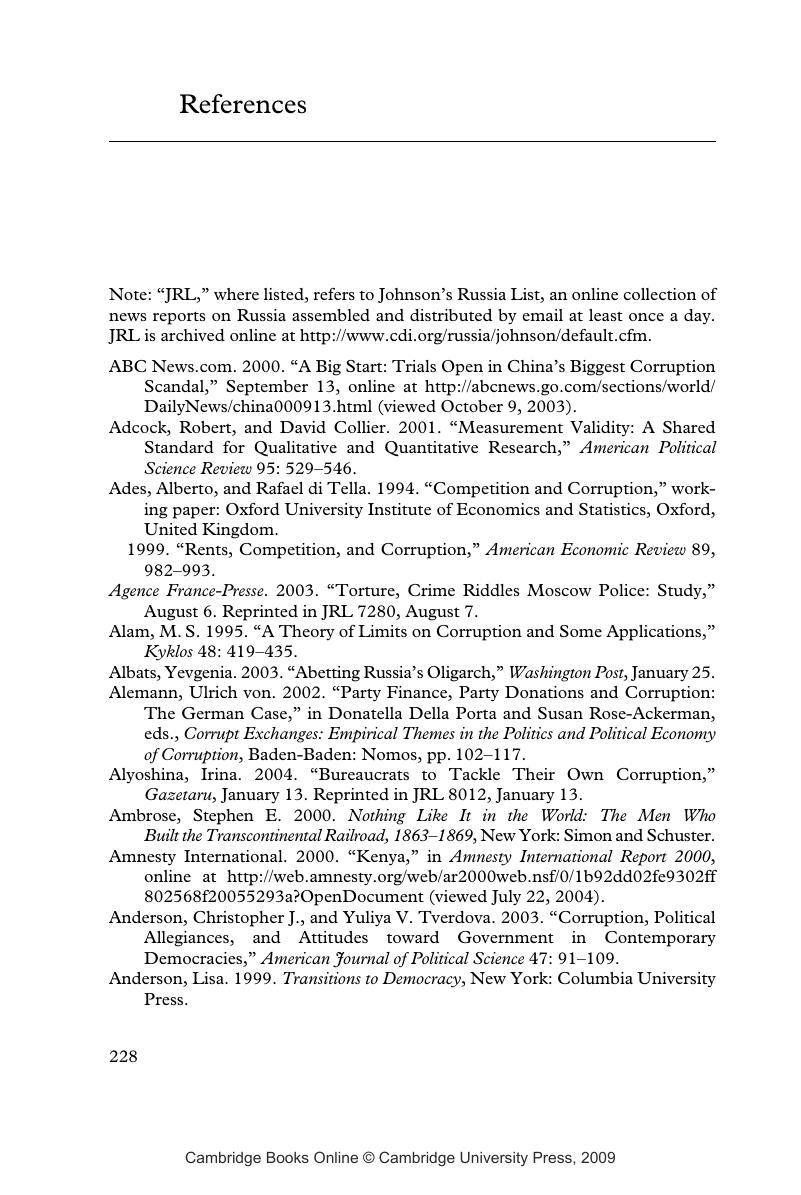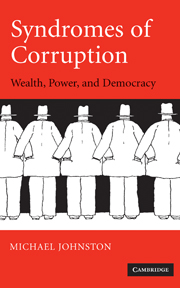Book contents
- Frontmatter
- Contents
- List of figures
- List of tables
- Preface
- 1 Wealth, power, and corruption
- 2 The international setting: power, consensus, and policy
- 3 Participation, institutions, and syndromes of corruption
- 4 Influence Markets: influence for rent, decisions for sale
- 5 Elite Cartels: how to buy friends and govern people
- 6 Oligarchs and Clans: we are family – and you're not
- 7 Official Moguls: reach out and squeeze someone
- 8 From analysis to reform
- Appendix A Countries in each cluster and distances from statistical cluster centers
- Appendix B Statistical indicators for country clusters
- References
- Index
- References
References
Published online by Cambridge University Press: 22 September 2009
- Frontmatter
- Contents
- List of figures
- List of tables
- Preface
- 1 Wealth, power, and corruption
- 2 The international setting: power, consensus, and policy
- 3 Participation, institutions, and syndromes of corruption
- 4 Influence Markets: influence for rent, decisions for sale
- 5 Elite Cartels: how to buy friends and govern people
- 6 Oligarchs and Clans: we are family – and you're not
- 7 Official Moguls: reach out and squeeze someone
- 8 From analysis to reform
- Appendix A Countries in each cluster and distances from statistical cluster centers
- Appendix B Statistical indicators for country clusters
- References
- Index
- References
Summary

- Type
- Chapter
- Information
- Syndromes of CorruptionWealth, Power, and Democracy, pp. 228 - 256Publisher: Cambridge University PressPrint publication year: 2005



